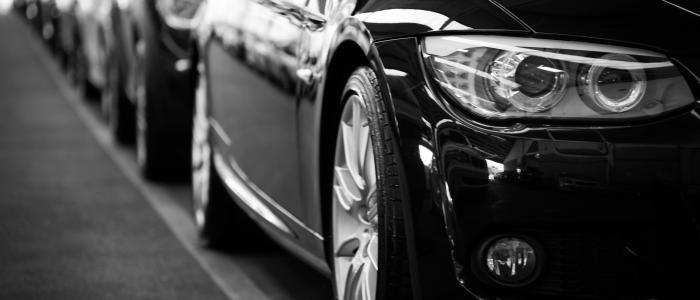Automotive industry responsible for nine percent of CO2 emissions worldwide
Author: Mario Schmidtgen
Date: 10.09.2019
Study by Greenpeace
Numbers which are shocking. Before the start of the IAA in Frankfurt, Greenpeace presented frightening figures for the automotive industry. For example, around nine percent of global CO2 emissions can be traced back to the industry. The Volkswagen Group plays the largest role with CO2 emissions of around 582 million tons. This is about as high as Australia’s complete CO2 emissions.
With the publication of the data, Greenpeace wants mainly to cause a rethink in the automotive industry, after all, the entire industry has done nothing for climate protection in recent years. “In their advertising, they stress how much they care about our well-being and safety, especially that of our children. Their business decisions, however, tell a completely different story,” says the study “Crashing the climate.” The CO2 emissions of the twelve largest car companies are higher than those of the EU as a whole.
The “Exit” alliance, to which Greenpeace belongs, has set itself the goal of disrupting the IAA as much as possible this weekend. Numerous actions are planned for Sunday in particular. “We will block access with our bodies,” announced Tina Velo, spokeswoman for “Sand im Getriebe”, in Frankfurt this morning. Several hundred participants are expected. “Visitors who have the great desire to have a look at the cars should perhaps choose another day.”
For the first time in the history of the IAA, there will be such strong riots. For the organizer of the fair, the situation is therefore completely new. There is widespread concern, for example, that the protests may jeopardize the entire private transport sector. And this concern is not entirely unfounded; after all, climate protectors are demanding everything from the car-free city to the partial disempowerment of the car industry.
“We want a radical traffic turn from below, with significantly fewer cars. We are also prepared to cross the border of legal protest,” Velo made clear. But one thing is certain: the protests will be peaceful, without violence against people, objects or cars. “This is not our form of action,” says Velo.
In addition, the bicycle star ride scheduled for Saturday should not be less effective. “10,000 participants have registered. But how many will come also depends on the weather,” says Uwe Hiksch of the organization Naturfreunde. Cyclists will travel to Frankfurt via the federal highways and the A661 and A648 motorways.
But no matter what the protest looks like in the end, they all have one thing in common: frustration and anger about the car industry and politics. “We have a highly criminal car industry and completely incompetent transport ministers, a Mafia-knitted conglomerate,” Velo says. Nobody believes that changes will come voluntarily. “The car industry doesn’t understand anything about traffic and mobility,” says Ludger Koopmann of the Allgemeiner Deutscher Fahrradclub ADFC.
From its own point of view, the automotive industry does not see itself as part of the traffic turnaround, which is why Velo consistently refused to exchange information with industry representatives for a long time. On Monday, however, they broke their silence and discussed with VW boss Herbert Diess. Only three years ago, VW had lied to the whole world and suddenly the company started an E-Offensive.
It is clear that not everyone may feel addressed by the verbal attacks, but the whole car industry is currently in danger. The activists are anything but chaotic and unstructured. Every step has been professionally planned down to the last detail. For example, for the star trip, information technology was used to calculate precisely when and where the group of cyclists would be, so that new participants could be received there. In addition, the demonstration was planned together with the police so that there would be no problems. The authorities are therefore fully behind the project. After all, the aim of the demonstration is not to obstruct drivers. “We want to show: We also exist as road users in the high office of the car industry.”
However, the activists do not target direct consumers, even though they are aware that there must also be a change in behavior here. But especially in rural areas, people are more dependent on their cars than ever before. “I’m the last one to tell them you can’t drive anymore. What we want is freedom of choice for these consumers when it comes to mobility.” At this point, public transport in particular needs to be expanded and modernized. For this to get off the ground, it is important to nudge industry and politics and not consumers.



Comments are closed.